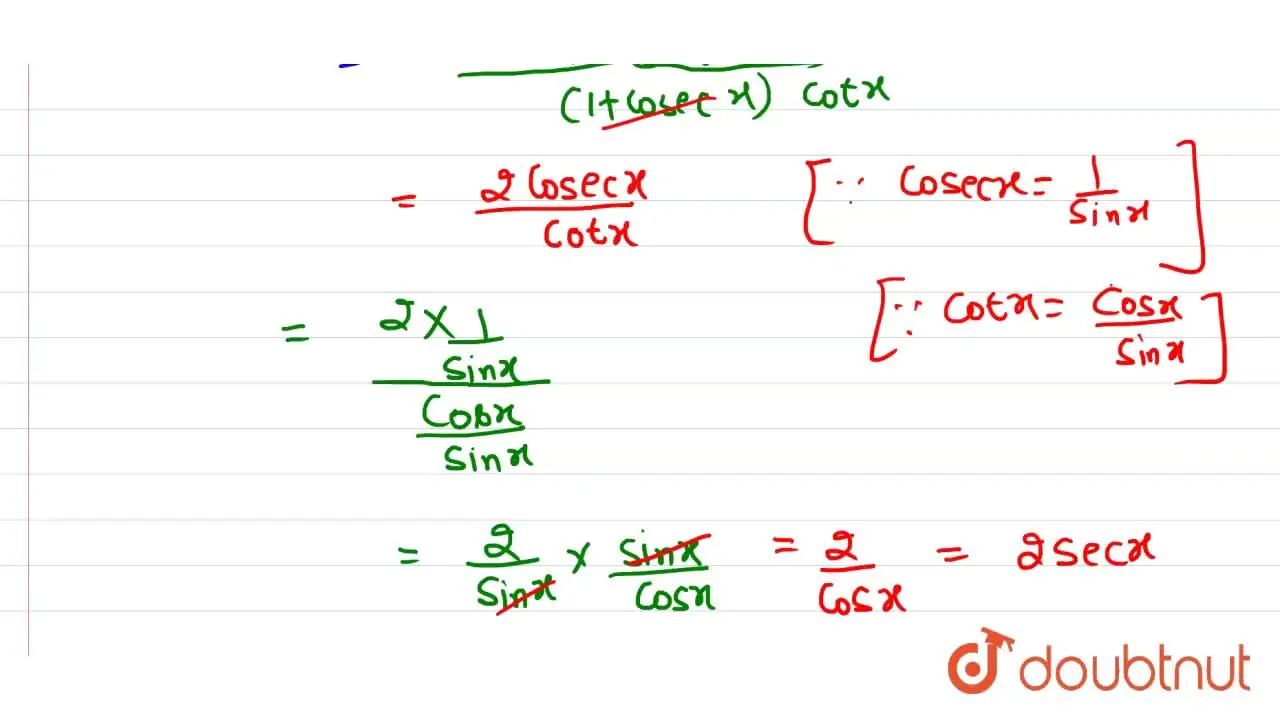cotx1+cosecx+1+cosecxcotx is equal to:
cotx1+cosecx+1+cosecxcotx का मान है:
A
2 secx
B
2cosx
C
2 cosecx
D
2sinx
Video Solution
|
Answer
Step by step video & image solution for (cotx)/(1+cosec x)+ (1+cosec x)/(cot x) is equal to: (cotx)/(1+cosec x)+ (1+cosec x)/(cot x) का मान है: by Maths experts to help you in doubts & scoring excellent marks in Class 14 exams.
Updated on:21/07/2023
Related Playlists
Similar Questions
log(cosec x−cotx)
View Solutioncosecx=1+cotx
View Solution∫cosecx(cosecx+cotx)dx=?
View Solution∫cotxcosec2xdx
View Solutionddx(cosecx+cotx)=
View Solution∫1tanx+cotx+secx+cosec xdx is equal to
View Solution∫secxcosecxlog(cotx)dx=
View Solutioncosec 2x + cot 2x = cot x
View Solution∫cosecx(cotx−1)exdx
View SolutionProve that 1+cosx1−cosx=(cosecx+cotx)2
View Solution


